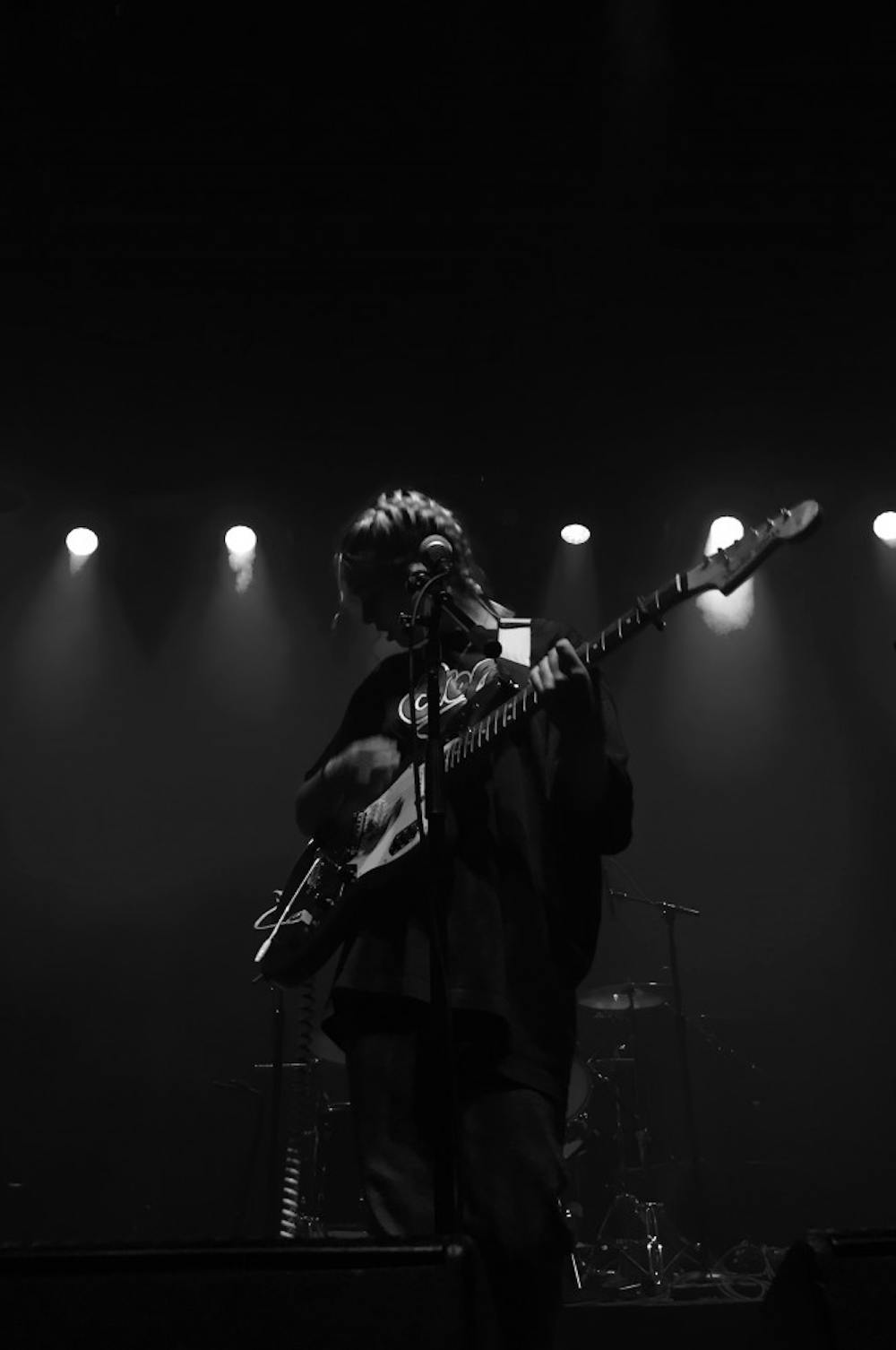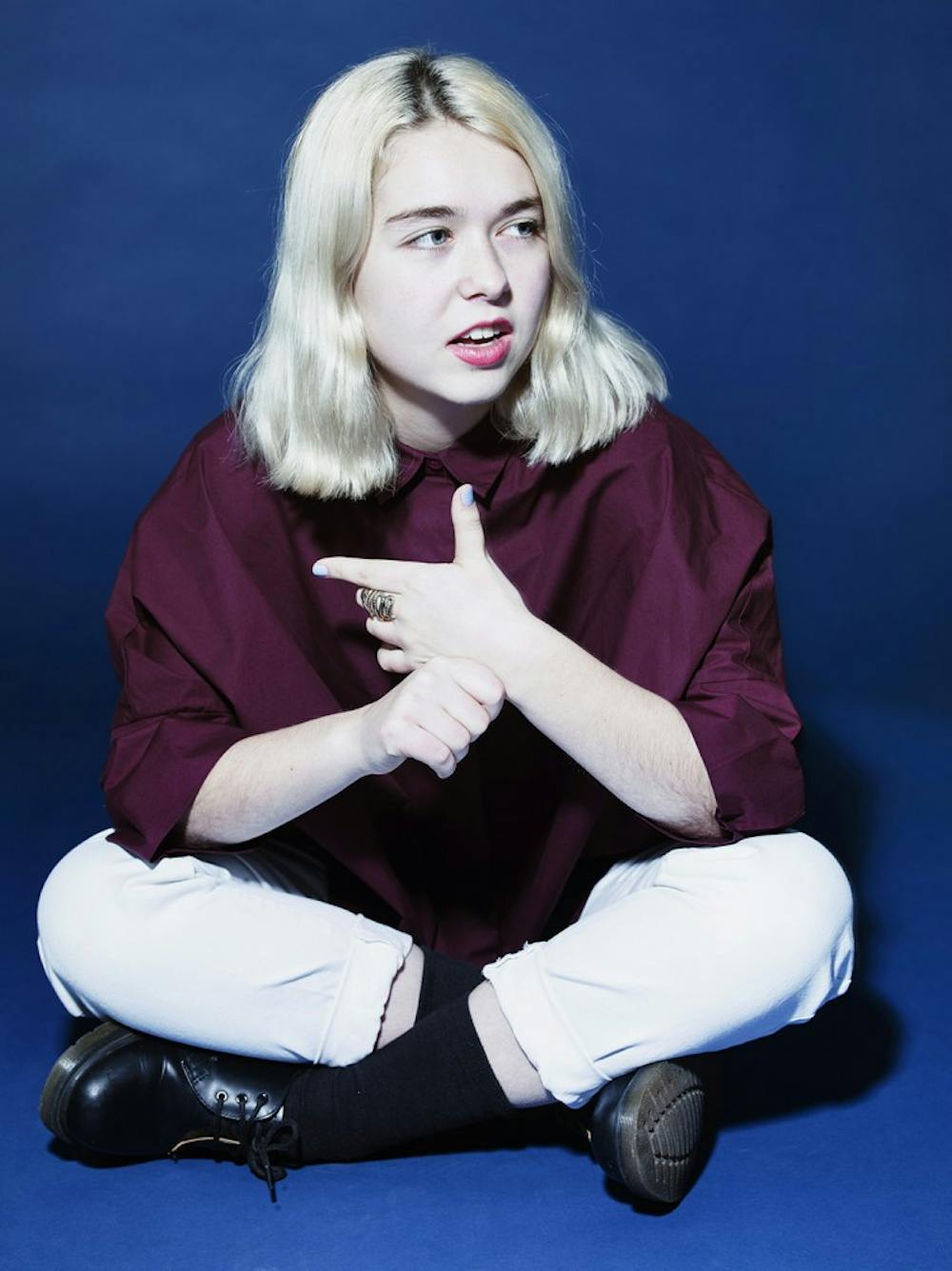Last Saturday, when I went to a live show headlined by Snail Mail—an artist about whom I've been waiting to write—I remembered what it means to fully connect to a piece of music.
Lindsey Jordan, the wunderkind frontwoman of Snail Mail and current indie–rock darling, is as quiet and shy as the narrator of her adolescent love songs. Without a word at the start of the night, she joined the opening act Bonny Doon onstage as their bassist and infrequent backup vocalist.
Her quiet presence made the sound more enticing, alleviating the crowd’s nervous anticipation of seeing the 19–year–old in person for the first time. With this renewed focus on the chugging rhythms of Bonny Doon, the slow drums primed the night for the main act.

Snail Mail’s discography is short, and so was their set. But they held a great power from the opening guitar jam, with Jordan unleashing a distortion of random melodies that brought her to her knees.
There was a noticeable juxtposition between the mature rock and Jordan's small, girlish appearance. Draped in an XL–size Orioles T–shirt over jeans with her hair in two small French braids, she looked as if she were even younger than nineteen. And, as she sang the first few words of “Heat Wave”—the lead single from her newest record Lush—the higher range notes brought out a kind of poignant innocence in her voice that doesn't come through in the recorded version.
Until this point, Jordan had been an enigma to me—some far–off vision of a female artist brought to Earth to save indie rock, which is often a title that is more punishing than it is rewarding. But behind the full–bodied guitar strums and the wise–beyond–her–years lyrics is a real and tangible human being that still hasn’t quite digested the way so many have come to idolize her.
To give some context to the absolute whirlwind of Snail Mail’s success over these past few months, take this figure: they played their last Philadelphia show in January at a venue with a capacity of 150. Union Transfer, where the band headlined last Saturday, has a capacity of 1,200.
Mixing in songs from Lush and their debut EP Habit, Snail Mail kept their music as varied as possible. When they came to “Pristine,” the most popular track from Lush, Jordan introduced it as a song about love, asking if the crowd was “into that.”
Snail Mail balanced the high volume and energy later in the night as everyone but Jordan cleared the stage for her to play a solo performance of “Anytime.” Under a warm spotlight, she crooned the words of disappointment with young love and unfulfilled expectations that end with her telling her subject that she’ll “still forgive you anytime.”
With such emotional weight in all of her songs, the fact that the band never overwhelmed the crowd is a testament to their self–awareness. Each song flowed perfectly into the next.
One of the most beautiful moments of the night came in the penultimate song, an acoustic duet of Sheryl Crow’s “Are You Strong Enough to Be My Man?” with Katie Crutchfield of Waxahatchee.
The surprise was all the more moving after Jordan shared the fact that she had played Union Transfer a year ago that night, as a supporting act for Waxahatchee. Recalling when they first decided to book Union Transfer for this headlining tour, she told the crowd that this was the biggest venue that Snail Mail has ever played. She only expected about seven people to show up in the big empty room, “which would be kind of cool in a way, but this is fine too,” she said jokingly.
Looking around at the concert–goers around me, I was amazed by how many looked to be well over twenty, or even thirty in many cases. I’ve always seen my connection to Snail Mail’s music as a sort of recognition of myself in Jordan. So, to see so many there that could not possibly have that recognition on the same level as a girl on the precipice of adulthood was frankly awe–inspiring.

That same sort of awe still was obvious in the band. After leaving the stage, the lights over the crowd went up only to darken again after 45 seconds, as Snail Mail re–emerged for an encore. As they ended the night with “Static Buzz,” I began to feel the onset of bittersweet evanescence that comes with every captivating performance—but this one had an extra sting to it.
Maybe it's because, after years of falling in love with rock, I finally saw someone I could really identify with onstage. She isn't so much revolutionary for taking leaps and bounds within the frame of the music itself (though her songwriting and guitar–playing should be by no means disregarded), but because she is one of the few champions of this sound who is both a woman and a member of the LGBTQ+ community.
And maybe that’s why I felt an inexplicable urge to dye my hair and finally learn the guitar in the immediate moments that followed the show: I finally realized that seeing myself in her place someday may not be so far–fetched after all.

